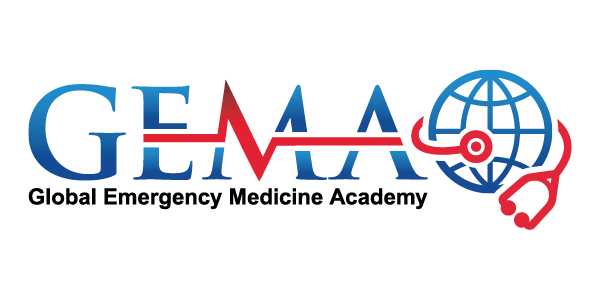GEORGE WASHINGTON UNIVERSITY
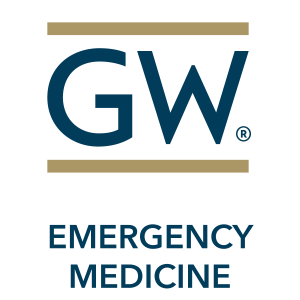
As the field of global emergency medicine grows in both breadth into more and more countries and communities, and depth as it ranges from disaster medicine to humanitarian aid to systems development, we aim to educate and train the future leaders in a growing field. Our core programs are working to build capacity and systems of emergency care through education and training. This fellowship program provides opportunity for collaboration with a broad spectrum of organizations to build a robust network to be acquired during fellowship. We aspire to enable U.S. physicians to develop leadership skills, knowledge, and experience in order to significantly impact the international community and facilitate future career opportunities.
- International clinical and public health field projects.
- A working knowledge of public health issues by obtaining an M.P.H. at the GW Milken Institute School of Public Health in the Department of Global Health.
- Training in Emergency Medical Services (EMS) education and system design and disaster preparedness as it pertains to international emergency medicine development.
- Skills to conduct clinical research, especially in an international environment.
- Skills to conceptually develop programs, identify potential funding sources, and submit grants and proposals.
- Administrative skills to develop and organize international educational programs.
- A working knowledge of governmental and non-governmental international organizations and infrastructure.
- Maintenance and refinement of clinical skills within his/her residency-trained specialty at one of our affiliated hospitals.
- A familiarity with humanitarian organizations and their management, and an effective understanding of how to deliver emergency health care in humanitarian crises and international disasters.
Fellowship Experience
Each fellow will be expected to take part in ongoing projects with the Ronald Reagan Institute of Emergency Medicine and the Department of Emergency Medicine. Each fellow is expected to spend a significant portion of time during each year abroad working on various health projects, as permitted by the individual and MPH class schedule. These practical experiences must be designed to be substantive and increase the fellows' knowledge base. It is the fellowship goal that this not be a simple observational experience, but that the fellow takes an active leadership role. This practical experience will also provide an opportunity to apply acquired skills in varied clinical and educational settings. Fieldwork will be arranged and coordinated by the fellow under the supervision of the Fellowship Director.
Fieldwork will include some of the following core activities:
* Health policy development
* International public health
* International emergency medicine program development
* International emergency systems evaluation and research
* Disaster response, disaster preparedness, and bioterrorism
* Emergency medicine educational/residency training program development
* International EMS development activities
* Injury prevention
Each fellow is encouraged to also develop their own international project during their two-year fellowship. The project will ideally include all phases of program development—from concept to proposal writing, monitoring and evaluation, budgeting, funding, and implementation. Significant mentoring will be provided for project development by the fellowship director and faculty members.
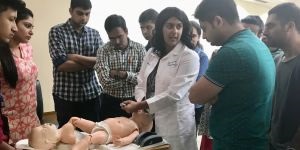

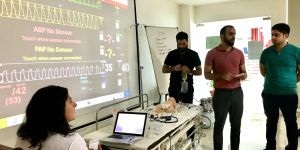
Fellowship Curriculum
Experiential:
- Each fellow will be expected to take part in ongoing projects with the Ronald Reagan Institute of Emergency Medicine and the Department of Emergency Medicine. Each fellow is expected to spend a significant portion of time during each year abroad working on various health projects, as permitted by the individual and MPH class schedule.
- These practical experiences must be designed to be substantive and increase the fellows' knowledge base. It is the fellowship goal that this not be a simple observational experience, but that the fellow takes an active leadership role. This practical experience will also provide an opportunity to apply acquired skills in varied clinical and educational settings.
- Fieldwork will be arranged and coordinated by the fellow under the supervision of the Fellowship Director. Fieldwork will include some of the following core activities: Capacity building through education and training, health policy development, international public health, international emergency medicine program development, international emergency systems evaluation and research, disaster response, disaster preparedness, and bioterrorism, emergency medicine educational/residency training program development, international EMS development activities, injury prevention
- Each fellow is encouraged to also develop their own international project during their two-year fellowship. The project will ideally include all phases of program development—from concept to proposal writing, monitoring and evaluation, budgeting, funding, and implementation. Significant mentoring will be provided for project development by the fellowship director and faculty members. Fellows will be guided through the process of grant writing and funding application development, and are expected to learn the core competencies of grant writing, budgeting, reporting, and evaluation during their fellowship experience.
Academic:
- The two-year fellowship curriculum will provide a rigorous and comprehensive exposure to the broad scope of knowledge that comprises international emergency medicine. The M.P.H. degree program in global health is expected of those fellows who do not already have an M.P.H. degree. Persons entering the program who already have their M.P.H. will have the opportunity to pursue other degree or non-degree programs offered at GW to supplement their prior degree. Additional monthly didactic lectures will cover relevant topics such as project development, international health, international organizations and NGO's. Outside speakers will be invited to monthly sessions, representing local authorities from the public health and international communities. A joint fellowship curriculum, together with other fellows from GW (i.e. EMS/disaster, health policy) will cover topics common to all the fellowship programs, such as developing a research project, IRB topics, and "How to become an Effective Educator." Fellows will be expected to give at least one grand rounds during the second year of their fellowship program, and each fellow will be responsible for preparing at least one didactic session for the group each year. The fellow will also participate in lectures and presentations pertaining to international health at the GW Milken Institute School of Public Health.
- In addition, as part of the fellowship curriculum, fellows may choose elective rotations with the following agencies and lending institutions (World Bank, IADB, CDC, USAID, AIHA, PAHO, FEMA, DHHS). Each fellow will have the opportunity to take the Humanitarian Emergencies in Large Populations course, as offered by the International Committee of the Red Cross. This is offered annually at Johns Hopkins University, and is usually taken between the first and second year of the fellowship. The course is an intensive three weeks of classes covering the many aspects of humanitarian emergencies with a purpose of providing the public health tools necessary for making appropriate decisions in emergency situations involving large populations. This course will count as elective credit towards the M.P.H. degree.
- Each fellow will be expected to conduct at least one IRB-approved research project during the time of their fellowship. This can often also serve as a culminating experience for the M.P.H. degree. Topics can be determined by the individual, including such topics as: Emergency health systems (clinical and/or administrative), Educational initiatives, Epidemiology, Public health, Acute care aspects of primary care, Disaster response, EMS systems. Fellows will be encouraged to submit abstracts to national and international emergency medicine meetings.
- The fellow will work as a member of the clinical faculty at an affiliated hospital. The fellow will provide on average 14 hours/week of clinical coverage in the emergency department. As a junior faculty member, the fellow will participate in academic activities in the Department of Emergency Medicine, including grand round presentations, conferences, and journal clubs.
Projects
| Project Name & Description | Details |
|---|---|
| GWU India Post Graduate Masters in Emergency Medicine International |
Three year, full time, residency like education and training program working in numerous sites across the country of India to build capacity for effective emergency care.
|
| GWU Post Graduate Diploma in Emergency Medicine |
This is a one year, part time skills based program, designed for actively working physicians to build their skills and knowledge in Emergency Medicine. This program is primarily based in Madurai, partnering with the Meenakshi Mission Hospital & Research Centre.
|
Contacts
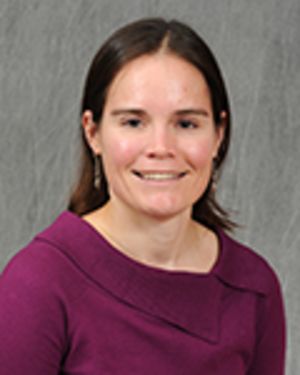
Other Documents - Program Specific Requirements
To apply, please send a copy of your curriculum vitae, a personal statement (1-2 pages in length) expressing your interests/career goals, your expectations from the program, the strengths that you would bring to the fellowship, a letter of intent describing your specific interest in the GW program, and three (3) reference letters, including one from your emergency medicine residency program director. If you have questions about the program, please reach out to: Dr. Kate Douglass; kdouglass@mfa.gwu.edu; kate.emed@gmail.com; (202) 741-2954.
Additional Application / Interview Information
Application Process
Important Dates
Application Deadline
Interview Date

